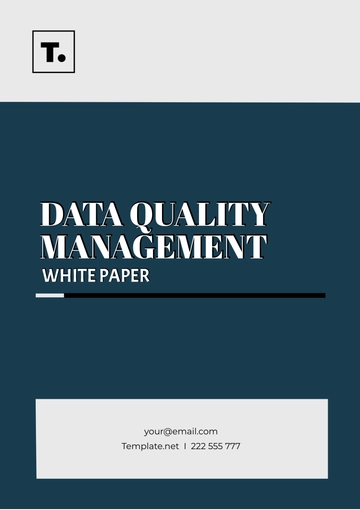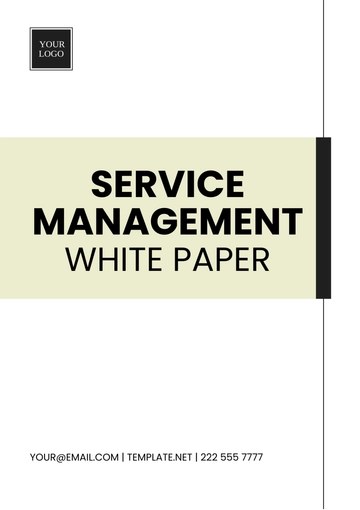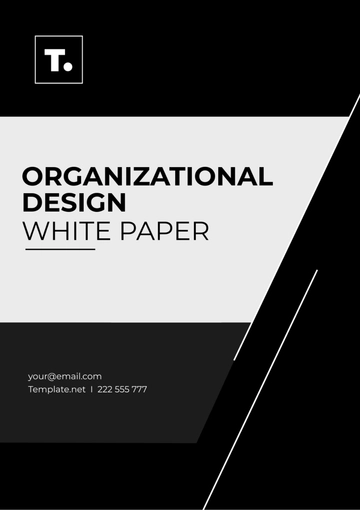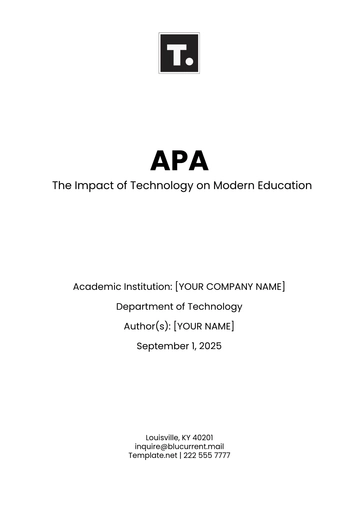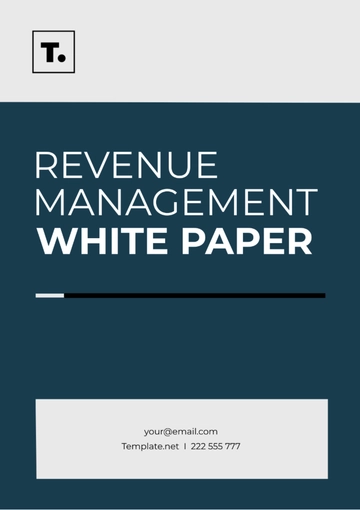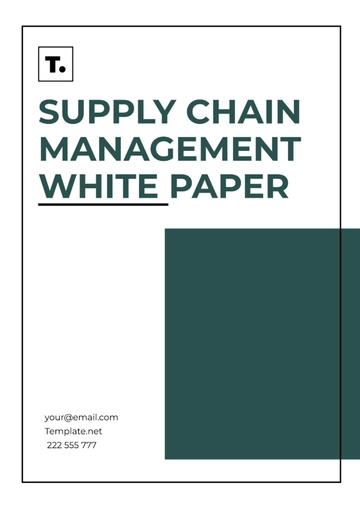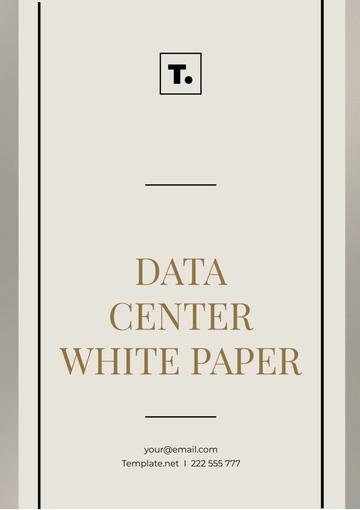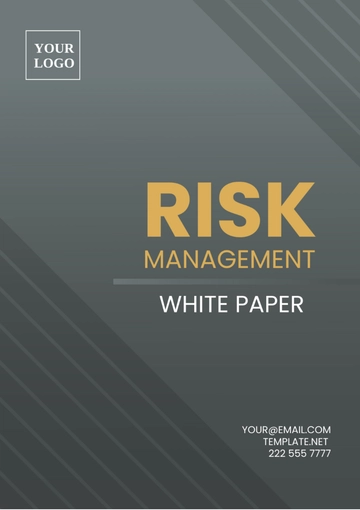Free Information Management White Paper
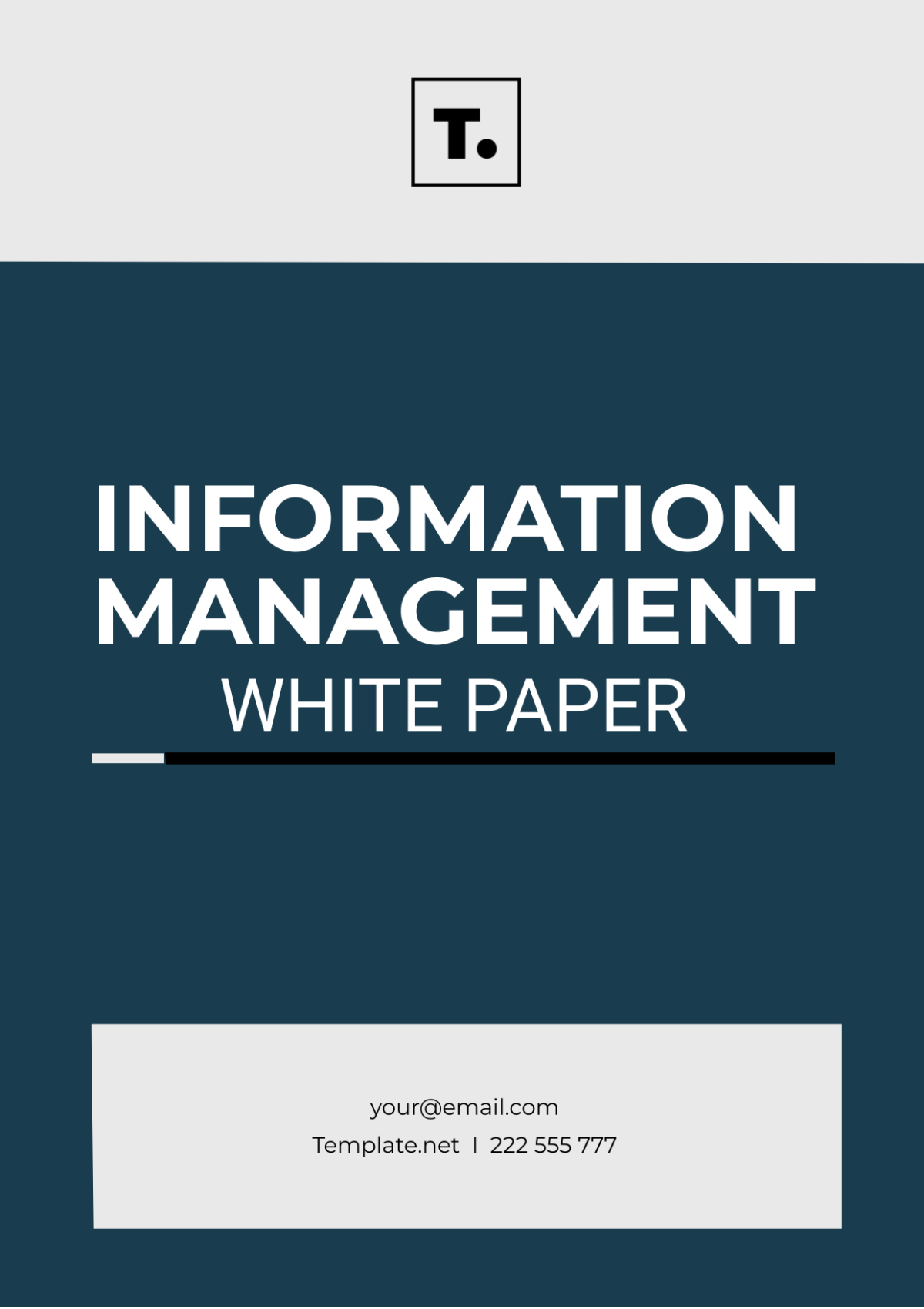
Comprehensive Guide to Effective Information Management
Prepared by: [Your Name]
Organization: [Your Company Name]
Department: [YOUR DEPARTMENT]
Date: [DATE]
I. Introduction

In today's digital age, effective management of information is paramount for the success of any organization. This white paper serves as a comprehensive guide to [Your Company Name]'s strategies, best practices, and insights related to effectively managing information within an organization.
II. Understanding Information Management
A. Definition of Information Management
Information management encompasses the processes, tools, and strategies used to acquire, organize, store, retrieve, and disseminate information within an organization.
B. Importance of Information Management
Terms | Description |
|---|---|
Enhanced Decision Making |
|
Increased Efficiency |
|
Risk Mitigation |
|
III. Key Components of Information Management
A. Data Governance
Establishing Policies: Define policies and procedures for data governance to ensure data quality, integrity, and security.
Data Stewardship: Assign responsibilities and roles for managing data assets effectively.
Compliance Management: Ensure compliance with regulatory requirements and industry standards.
B. Information Security
Cybersecurity Measures: Implement robust cybersecurity measures to protect sensitive information from unauthorized access, breaches, and cyber threats.
Encryption: Utilize encryption technologies to safeguard data both at rest and in transit.
Access Control: Implement granular access controls to restrict access to confidential information based on user roles and permissions.
C. Data Storage and Retrieval Systems
Storage Solutions: Evaluate and implement appropriate storage solutions, including cloud storage, on-premises servers, and hybrid storage models.
Data Retrieval: Develop efficient data retrieval systems to enable quick and seamless access to information when needed.
Scalability: Ensure scalability of storage infrastructure to accommodate the organization's growing data needs.
IV. Best Practices for Information Management
A. Data Classification
Categorization: Classify data based on its sensitivity, criticality, and regulatory requirements.
Retention Policies: Define retention policies to determine the lifecycle of data and ensure compliance with legal and regulatory mandates.
B. Continuous Monitoring and Auditing
Monitoring Tools: Deploy monitoring tools to track data access, usage patterns, and security incidents.
Auditing Processes: Conduct regular audits to assess the effectiveness of information management practices and identify areas for improvement.
C. Employee Training and Awareness
Training Programs: Provide comprehensive training programs to educate employees on information management best practices, security protocols, and compliance requirements.
Awareness Campaigns: Raise awareness among employees about the importance of information security and their roles in safeguarding sensitive data.
V. Conclusion

Effective information management is essential for organizations to thrive in today's data-driven environment. By implementing the strategies and best practices outlined in this white paper, [Your Company Name] can optimize its information management processes, enhance its security posture, and achieve its business objectives.
- 100% Customizable, free editor
- Access 1 Million+ Templates, photo’s & graphics
- Download or share as a template
- Click and replace photos, graphics, text, backgrounds
- Resize, crop, AI write & more
- Access advanced editor
Unlock the power of streamlined information management with Template.net's Information Management White Paper Template. Crafted for clarity and impact, this editable and customizable template empowers you to articulate your ideas effortlessly. Seamlessly integrate your insights with our AI Editor for enhanced efficiency. Elevate your documents to the next level of professionalism. Master the art of communication today!





